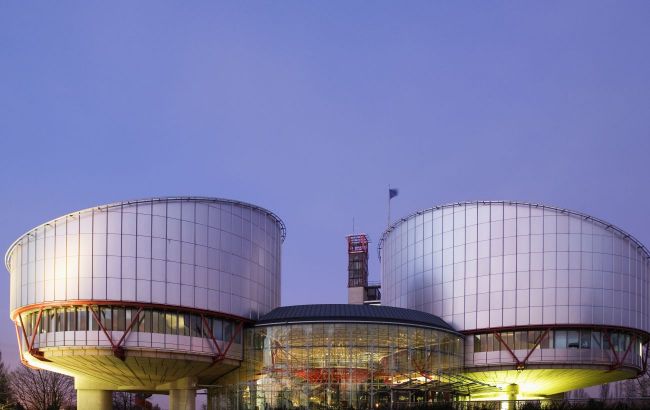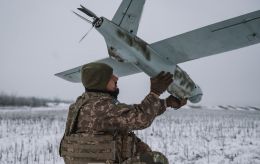European court finds Russia guilty of human rights abuses and downing MH17
 Photo: ECHR finds Russia guilty of human rights violations in Ukraine (Getty Images)
Photo: ECHR finds Russia guilty of human rights violations in Ukraine (Getty Images)
The European Court of Human Rights has found Russia guilty in a joint case that combines the complaints of Ukraine and the Netherlands against Russia regarding numerous human rights violations during the war and the downing of flight MH17 in Donbas.
The court's decision was announced today, July 9. The Russian side did not appear at the announcement of the decision, and was absent from all previous meetings.
The ECHR judgment concerns four cases:
- Ukraine v. Russia (no. 8019/16) - violations during the armed conflict in Donbas, including the downing of MH17, torture, forced labor, etc.;
- Ukraine v. Russia (no. 43800/14) - abduction and illegal transfer of Ukrainian children to Russia in 2014;
- Netherlands v. Russia (no. 28525/20) - circumstances and consequences of the downing of flight MH17;
- Ukraine v. Russia (no. 11055/22) - gross human rights violations during the full-scale invasion since February 24, 2022.
In its judgment, the Court recognized that it had jurisdiction over these complaints concerning events that occurred before September 16, 2022, when Russia's membership in the Council of Europe was terminated.
The Court also found Russia guilty of human rights violations that occurred in the occupied territories before and after February 24, 2022.
This includes the killing of civilians and prisoners of war, imprisonment, inhuman treatment, torture, disregard for the consequences of its strikes on the civilian population, systematic practice of suppressing Ukrainian identity, including through the education system, moving Ukrainian children and adult civilians deep into the occupied territories, etc.
The court also found that flight MH17 over the Donetsk region was shot down by a Russian Buk missile system and that Russia was responsible for making this possible.
ECHR judge explains the logic of the court's decision
ECHR judge Mykola Gnatovskyy commented on the important decision and explained the logic that guided the court in assessing specific complaints.
He emphasized that history should show the importance of the decision. He thanked for the opportunity to be part of this court and draw attention to the logic that guided the court in assessing specific complaints and interpreting the Convention.
According to him, the court emphasized that Russia's actions in Ukraine are unprecedented in the history of the Council of Europe. In his opinion, the nature and scale of the violence, as well as the ominous statements by the leadership of the defendant state regarding Ukraine's statehood, independence, and very right to exist, pose a threat to peaceful coexistence in Europe and are aimed at undermining the foundations of democracy.
The judge noted that in none of the previous conflicts examined by the Court has there been such a unanimous condemnation by the international community of the defendant state's blatant disregard for the principles of the international legal order established after World War II, as well as such clear measures taken by the Council of Europe to sanction this state's disrespect for the fundamental values of the Council of Europe.
Boeing-777 flight MH17 crash
In July 2014, a Malaysia Airlines passenger Boeing-777 flying from Amsterdam to Kuala Lumpur was shot down in the sky over the temporarily occupied part of the Donetsk region. All 298 people on board were killed.
The international investigation found that the plane was shot down by a Russian Buk anti-aircraft missile brought from the territory of Russia and belonging to the 53rd Air Defense Brigade of the Russian Army. After the launch, the missile was quickly returned to Russia.
In February 2023, the ECHR merged the cases of Ukraine and the Netherlands v. Russia and Ukraine v. Russia (X) regarding the full-scale invasion into one large case.
In June 2024, the ECHR held hearings on the joint case of Ukraine and the Netherlands v. Russia. Representatives of the respondent state did not appear at the hearing, but both plaintiffs were present.

